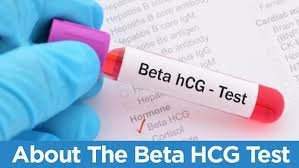
Safeguard Dewormer
Safeguard Dewormer, also known by its generic name fenbendazole, is a widely trusted and effective antiparasitic medication used to eliminate intestinal worms in various animals including dogs, cats, cattle, goats, pigs, and horses. Its versatility, affordability, and safety profile make it one of the most popular deworming agents available in both veterinary clinics and over-the-counter markets. Safeguard has been instrumental in maintaining the health and productivity of livestock, as well as ensuring the well-being of household pets. Understanding how this dewormer works, when to use it, how to dose it properly, and the possible side effects is essential for pet owners, farmers, and anyone involved in animal care.
What Is Safeguard Dewormer?
Safeguard Dewormer contains the active ingredient fenbendazole, a benzimidazole class anthelmintic. It functions by interfering with the energy metabolism of parasitic worms, specifically by inhibiting their ability to absorb glucose, which ultimately causes them to die and be expelled from the host animal’s body. Unlike some other dewormers that only target adult worms, Safeguard is effective against multiple life stages, including larval and adult stages of many internal parasites. It is available in several forms including granules, paste, and suspension, depending on the species being treated. For example, paste formulations are common in equine care, while granules or suspensions are used for dogs and livestock.
Targeted Parasites and Effectiveness
Safeguard Dewormer is known for its broad-spectrum effectiveness. In dogs, it is commonly used to treat roundworms, hookworms, whipworms, and certain tapeworms (specifically Taenia species, not Dipylidium caninum). In livestock and equines, it can eliminate strongyles, lungworms, pinworms, stomach worms, and threadworms. One of the key advantages of fenbendazole is its ability to target encysted larvae, which many other dewormers miss. This makes it especially valuable for horses and cattle where parasite larval migration can cause internal damage. It also has ovicidal properties, which means it can disrupt the life cycle of parasites by preventing eggs from developing or hatching.
Species-Specific Usage
Dogs and Cats
Safeguard is most commonly used in dogs for the treatment of giardia, roundworms, hookworms, and whipworms. It is usually given as a 3-day course, with the dosage based on body weight (typically 50 mg/kg). Although it is not officially labeled for cats in all countries, some veterinarians use it off-label for felines to treat similar parasites, especially in multi-pet households or shelters.
Horses
For horses, Safeguard is often administered as a paste or pellet and is used to control large and small strongyles, pinworms, and ascarids. It is sometimes used as part of a power pack deworming regimen for horses with high parasite loads or signs of encysted larval infestations.
Cattle, Sheep, and Goats
In livestock such as cattle and goats, Safeguard is administered orally in the form of suspension or feed additive to control barber pole worms, lungworms, and stomach worms. Proper dosage and timing are critical to avoid the development of resistance. Deworming schedules often align with grazing patterns and seasonal parasite prevalence.
Pigs
In pigs, Safeguard is commonly used to eliminate large roundworms, kidney worms, and lungworms. It is often mixed with feed for easy administration, and producers value it for its short withdrawal period before slaughter.
Fenbendazole as an Emerging Human Interest
Interestingly, fenbendazole, the active compound in Safeguard, has gained interest in human medicine and alternative treatment circles for its potential anti-cancer properties. Though not approved for human use by the FDA, anecdotal reports and some laboratory studies suggest that fenbendazole might possess anti-tumor capabilities due to its effect on microtubule formation in cells. This off-label interest has led some people to self-experiment, although medical experts caution strongly against this due to lack of clinical evidence, unregulated dosing, and potential risks. It is important to understand that Safeguard is not intended or approved for human consumption, and such use could be dangerous without professional guidance.
Dosage Guidelines
Proper dosing is essential to ensure effectiveness and minimize the risk of side effects or resistance. In dogs, the usual dose is 50 mg/kg once daily for 3 days. The paste for horses is typically dosed based on body weight, with one 25-gram tube treating a 1,100-pound horse. For cattle, the suspension is commonly dosed at 5 mg/kg body weight, and this varies depending on whether it is being used for treatment or prevention. It’s essential to read the manufacturer’s label or consult a veterinarian or animal health professional for exact dosages. Overdosing can lead to toxicity, while underdosing may allow some parasites to survive, contributing to drug resistance.
Safety and Side Effects
One of the major advantages of Safeguard Dewormer is its high safety margin. It is generally well-tolerated in most animals, including pregnant females and young animals. Side effects are rare but may include vomiting, diarrhea, lethargy, or allergic reactions in sensitive individuals. In dogs, a temporary increase in bowel movements or mild digestive upset is possible during the expulsion of worms. It’s also important to monitor animals after treatment, especially if they have a heavy worm burden, as dying worms can cause blockages or immune reactions in rare cases. Always ensure that clean water is available and that animals are kept in a low-stress environment post-treatment.
Resistance Management
Like with any medication, the overuse or improper use of dewormers can lead to parasite resistance. This is a growing concern in both veterinary and livestock management. To prevent resistance, it is recommended to perform fecal egg count (FEC) tests before and after treatment to monitor effectiveness. Rotating dewormers, avoiding unnecessary deworming, and using strategic deworming protocols can help preserve the effectiveness of fenbendazole and other anthelmintics. For instance, rather than deworming all animals routinely, only those with high parasite loads based on testing should be treated. This targeted deworming approach helps maintain a healthy level of “refugia” — parasites that remain susceptible to treatment — which slows the development of resistance.
Legal and Regulatory Considerations
Safeguard Dewormer is approved by the FDA for animal use and is available over-the-counter in many countries. However, its use is governed by specific regulations, especially in food-producing animals. Each species and country may have different withdrawal periods — the time that must pass between treatment and when an animal can be slaughtered for food. For example, in cattle, the withdrawal period for meat is usually 8 days, while in goats, it may be 6 days. These time frames must be strictly followed to ensure that meat and milk are free from drug residues. Additionally, veterinarians should follow prescription guidelines and avoid off-label use unless it is legally permitted and medically justified.
Storage and Shelf Life
Safeguard Dewormer should be stored in a cool, dry place away from direct sunlight and moisture. Most formulations have a shelf life of 2 to 3 years when unopened and stored properly. Once opened, liquid suspensions and pastes should be used within the recommended time frame mentioned on the packaging. Keeping the product sealed and avoiding contamination is important for maintaining its efficacy. Expired products may lose potency and could be unsafe to use.
Cost and Accessibility
Another benefit of Safeguard Dewormer is its affordability and accessibility. It is widely available in veterinary pharmacies, agricultural supply stores, and online retailers. The price varies depending on the formulation and quantity, but it is generally cost-effective compared to some prescription-only dewormers. Multi-animal households, breeders, and farms often purchase it in bulk or in larger packaging for regular use. Cost-efficiency combined with a broad spectrum of action makes it a preferred choice for many animal care professionals.
Alternatives and Comparisons
While Safeguard is effective, it’s not the only option. Other common dewormers include pyrantel pamoate, ivermectin, praziquantel, and milbemycin oxime, each with its own spectrum of activity and safety profile. For example, ivermectin is highly effective against external parasites and some internal ones but can be toxic to certain dog breeds like Collies. Praziquantel is typically used for tapeworms and is often combined with other drugs for broader protection. Choosing the right dewormer often depends on the type of parasites present, the animal species, age, weight, and any co-existing health conditions. Consultation with a veterinarian is always recommended for best results.
Conclusion: A Trusted Solution for Parasite Control
Safeguard Dewormer stands out as a reliable, safe, and effective antiparasitic solution for a wide range of animal species. Its ability to target various stages of parasites, low risk of side effects, and user-friendly formulations make it a go-to product in both household and commercial settings. Whether you’re a pet owner dealing with routine deworming or a farmer managing a large herd, Safeguard offers the tools needed to keep animals healthy and free of internal parasites. Responsible use, proper dosing, and awareness of resistance are key to maintaining its long-term effectiveness. With continued education and best practices in place, Safeguard Dewormer will remain a cornerstone of parasite management for years to come.





